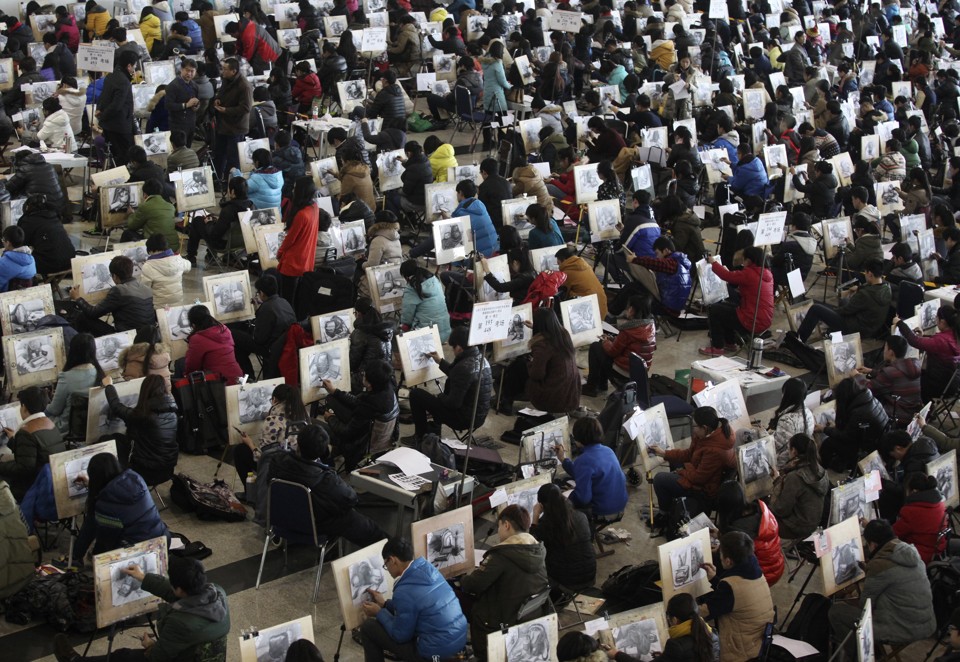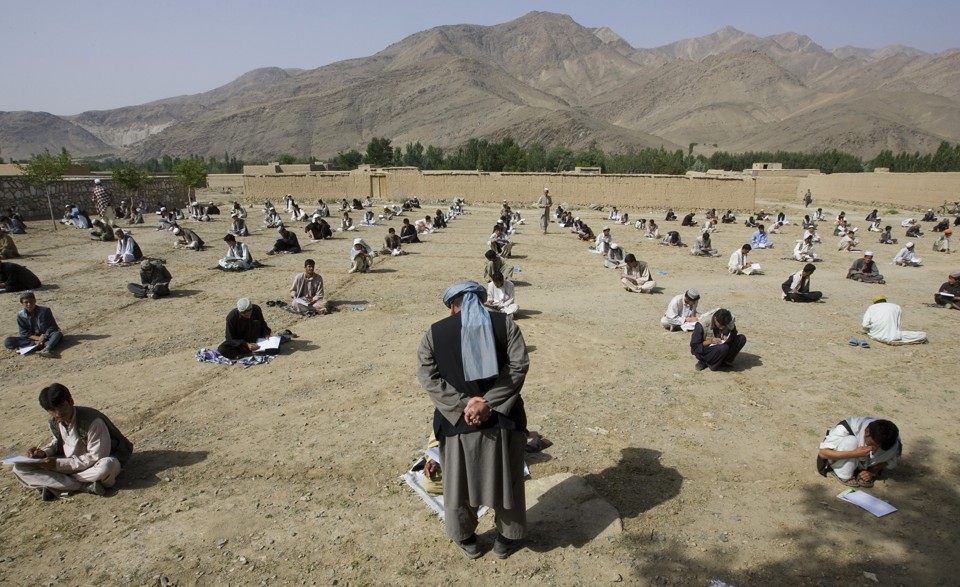Exams Around the World
The Atlantic
Examinations, tests, assessments—whatever the nomenclature, it’s hard to imagine schooling without them. Testing is the most popular method of quantifying individuals’ knowledge, often with the intention of objectively measuring aptitude and ability.
Test-taking is a dreaded experience that the country’s kids and young adults share with their counterparts across the globe. The ritual at its core doesn’t vary much: Students sit at a table or a computer desk (or sometimes, as shown below, on the floor), pencil and/or mouse in hand, the clock ticking away mercilessly. America for its part is home to what The Atlantic has described as an “alphabet soup” of standardized tests, including: the NAEP, SBAC, PARCC, ACT, and, of course, SAT. Testing has become increasingly notorious in the U.S., to the point that tens of thousands of parents across the country have opted their kids out of standardized tests.
In America, perhaps all the testing helps explain why “all-nighters” and Adderall abuse are the norm on many college campuses. But there is an unhealthy obsession with acing the test abroad, too. Fraudulent college applications are reportedly rampant among students in China—the birthplace of the standardized test—aspiring to attend school in the U.S. And hundreds of people in India were recently arrested in connection with a massive cheating scandal. (Many of those arrested were believed to be family members of the 10th-grade test-takers.) Meanwhile, as NPR has reported, “the relentless focus on education and exams is often to blame” for suicide among teens in South Korea, the leading cause of death for that demographic.
Test-taking appears to be more prominent in certain parts of the world, such as Asia, than in others. I struggled to find photos in the wire-service archives from Latin American countries—perhaps because of cultural differences in education or politics or socioeconomic factors. According to Gabriel Sanchez Zinny, the author of Educación 3.0: The Struggle for Talent in Latin America, most of the region’s countries refuse to participate in the Organisation for Economic Cooperation and Development’s global-proficiency exam. (American students for their part have consistently performed quite terribly on it.) Some experts reason that the countries want to avoid embarrassing themselves with potentially low rankings, though others point to skepticism over the methodology. As Sanchez Zinny recently reported for the BBC: “How do we measure the quality of education in Latin America against global standards if there is an unwillingness to take part in international tests?”





